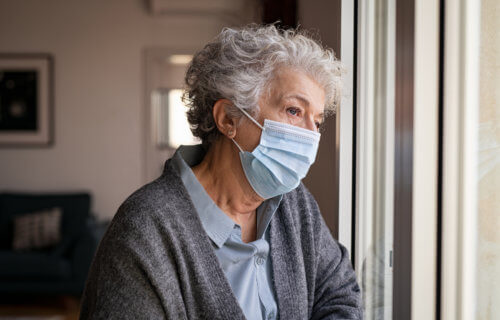MONTREAL, Quebec — As the COVID-19 vaccine continues to cause controversy among people who doubt its effectiveness, scientists are trying to answer one important question: are vaccinations or natural infections producing more antibodies? Along with finding that the COVID vaccines appear to do a better job of building up a defense against the virus, researchers from the University of Montreal made the surprising discovery that older adults actually produce more antibodies than younger coronavirus patients.
Their study reveals that people receiving the Pfizer BioNTech or AstraZeneca vaccine had significantly higher levels of COVID antibodies in their blood in comparison to those who created their own through recovering from the virus. These vaccine antibodies also displayed an ability to fight off COVID’s Delta variant.
Researchers Joelle Pelletier and Jean-François Masson wanted to examine this relationship further in one specific group — people contracting COVID-19 but not needing hospitalization due to their illness. The team studied 32 COVID-positive Canadian adults, recruited between 14 and 21 days after their COVID diagnosis. Study authors note that their study took place in 2020, before many of the more recent COVID strains emerged, such as the Beta, Delta, and Gamma variants.
“Everyone who had been infected produced antibodies, but older people produced more than adults under 50 years of age,” Masson says in a university release. “In addition, antibodies were still present in their bloodstream 16 weeks after their diagnosis.”
COVID vaccines double protection against mild cases
The study finds that “native” antibodies which come from fighting off a COVID-19 infection are also capable of detecting SARS-CoV-2 variants. However, researchers discovered that they do a poorer job than vaccine antibodies — losing 30 to 50 percent of their effectiveness.
“The result that surprised us the most was that antibodies produced by naturally infected individuals 50 and older provided a greater degree of protection than adults below 50,” adds Pelletier.
“This was determined by measuring the antibodies’ capacity to inhibit the interaction of the Delta variant’s spike protein with the ACE-2 receptor in human cells, which is how we become infected,” the researcher explains. “We didn’t observe the same phenomenon with the other variants.”
Study authors report that when a vaccinated person contracts a mild case of COVID-19, their antibody levels double in comparison to unvaccinated individuals with COVID. The combination of vaccine antibodies and natural antibodies are better able to keep the virus from attacking the ACE-2 gene which SARS-CoV-2 attaches itself to.
“But what’s even more interesting is that we have samples from an individual younger than 49 whose infection didn’t produce antibodies inhibiting spike-ACE-2 interaction, unlike vaccination. This suggests that vaccination increases protection against the Delta variant among people previously infected by the native strain,” Masson concludes.
The findings appear in the journal Scientific Reports.
